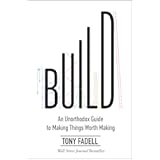Rethinking Financial Planning: Unlock Your Path to Sustainable Happiness
In the insightful video above, Mo Hasan challenges our common perceptions of financial planning. He highlights a crucial disconnect: many hard-working, intelligent individuals struggle financially. Despite taking initial steps like budgeting or saving, true financial security often remains elusive. This isn’t just a personal failing. It reflects a systemic issue in how we approach wealth and happiness. It’s time to examine why our traditional methods fall short. We must uncover a deeper understanding of money itself. This article expands on Mo Hasan’s core ideas, offering a fresh perspective. We will explore what truly drives financial success and sustainable happiness.
1. The Misconception of Money: Beyond Physical Wealth
Many believe making more income solves financial woes. However, 70% of US citizens live paycheck to paycheck, regardless of their earnings. This startling statistic reveals a deeper problem. The issue isn’t always a lack of money. It’s often a misunderstanding of what money represents. We often treat money as a physical object. We see it as dollar bills or digital numbers. Yet, money is far more abstract. It exists as an idea. It is confidence backed by a collective agreement. Imagine if every transaction was based purely on physical currency. Our complex global economy would simply grind to a halt. Money’s true power lies in shared belief. It is a spiritual construct, not just a physical one. This shift in perspective is foundational. It changes how we view financial planning. It helps us understand our financial struggles.
2. Our Current Financial Struggles: A Data Snapshot
The financial landscape presents significant challenges. Data reveals widespread vulnerabilities among Americans. These realities underscore the need for a new approach to financial planning.
- **Student Debt Crisis:** A alarming statistic from Sally Mae shows half of college students accumulate over $5,000 in credit card debt before graduating. A third of these students carry more than $10,000. This debt burdens young people entering their careers. It delays their journey towards financial freedom.
- **Lack of Emergency Savings:** Two-thirds of Americans struggle to find $1,000 for an emergency. This lack of a safety net is perilous. A sudden car repair or medical bill can cause financial devastation. Imagine if your car broke down this week. Would you easily cover a $1,000 repair? Many cannot.
- **Medical Catastrophes:** Unexpected health issues pose huge financial threats. A curable illness, like Hepatitis C, can cost $90,000 for treatment. Even with insurance, the burden remains significant. Such events can wipe out savings quickly. They highlight the fragility of many household budgets.
- **Paycheck-to-Paycheck Living:** As noted, 70% of Americans, regardless of income, live paycheck to paycheck. This includes people with high-paying jobs. It indicates that increased earnings alone are insufficient. There is a deeper, underlying issue at play.
- **Social Security Concerns:** The Social Security Administration’s trust fund faces depletion by 2033. For someone aged 46 today, their full benefits might not be available at 62. This creates uncertainty for future retirees. It emphasizes the need for personal financial security.
3. The Four Elements of Self: A Holistic View
To truly achieve financial success, we must consider our entire being. Our financial well-being connects deeply with our whole self. Mo Hasan introduces four key elements:
- **The Physical Body:** This is our tangible self. It exists in space and time. Our health directly impacts our ability to earn and enjoy wealth. What is the point of riches if you are too ill to enjoy them? Prioritizing physical health is a key aspect of long-term financial planning. Imagine retiring with ample funds, only to be too sick to travel.
- **Emotional States:** We experience a constant stream of emotions. These include happiness, sadness, excitement, and stress. Our emotions heavily influence financial decisions. Stress over low bank balances is common. Joy from high savings is equally potent. Understanding our emotional responses to money is vital.
- **Intellectual Capacity:** This encompasses all our knowledge and experiences. What we know about money directly impacts how much we accumulate. Ignorance about finance often leads to poor outcomes. Continuous learning and financial literacy are non-negotiable. Imagine making investment decisions without any prior knowledge.
- **Spiritual Energy:** This is our animating life force. It connects to our true purpose and values. Fulfilling our spiritual purpose brings deep happiness. People living their purpose are often happier. This inner alignment can positively affect all areas of life, including finances. When our purpose aligns, prosperity often follows.
These four elements intertwine. Neglecting one impacts the others. A holistic approach recognizes this interconnectedness. True financial planning addresses all these facets. It is not just about numbers on a spreadsheet.
4. Indecision: The Root of All Financial Problems
Mo Hasan identifies indecision as the primary cause of financial problems. We often delay crucial financial actions. We say, “I’ll start a budget someday.” Or, “I’ll learn about investments someday.” These “someday” conversations lead to inaction. Inaction creates problems and missed opportunities. Every problem in your life stems from indecision. This applies equally to your financial life. Imagine putting off home maintenance indefinitely. Eventually, small issues become expensive disasters. The same principle applies to finances. Making a decision, any decision, is the first step. It transforms your financial trajectory. It moves you from passive observation to active participation.
5. The Power of Spiritual Decisions
Making a “spiritual decision” is transformative. This means choosing a new viewpoint. It’s a deep commitment that alters your reality. Think about falling in love. You make a spiritual decision to prioritize that person. Your schedule clears. Your universe reorganizes itself. Physical actions then follow this profound internal shift. Financial decisions work the same way. When you spiritually decide to be financially successful, your actions align. Resources and opportunities appear. This isn’t about magical thinking. It’s about aligning your internal resolve with your external actions. It is choosing a new truth for yourself. This new truth then manifests in your life.
6. Your Three Paths to Financial Success: Choose Your Viewpoint
There are distinct paths to financial security. Each requires a different level of commitment. There is no single “right” answer. The best path is the one you choose and commit to wholeheartedly.
Path 1: The Minimum Effort Approach
This path involves doing the absolute minimum. You complete all necessary paperwork correctly. You take advantage of employer matching contributions, like 401(k) matches. You secure essential insurance for your family. This approach will get you to retirement. However, it likely won’t make you wealthy. You might struggle with major financial incidents. A quarter-million-dollar medical bill could be devastating. This path suits those who want to think about money as little as possible. It provides a baseline of financial planning. It prevents total financial ruin. Yet, it limits your potential for abundance.
Path 2: Build a Qualified Team
This path acknowledges the complexity of finance. You realize you need help. You decide to hire financial planners, tax advisors, and accountants. These experts will manage your money. However, you need sufficient education first. You must become “qualified” to “qualify” your team. This typically involves a three-to-six-month learning process. You learn the basics: mutual funds, GDP, economy, insurance. This knowledge protects you from being exploited. It ensures you can make informed decisions. It helps you choose genuinely competent professionals. Imagine hiring a contractor for your home. You learn enough to understand their proposals. This allows you to evaluate their expertise properly. This path is for those willing to learn enough to delegate effectively.
Path 3: Become the Bank
This is the most transformative path. It is a profound spiritual decision. You adopt the viewpoint of a bank, not a consumer. Banks consistently win in the financial world. Consumers, by contrast, often struggle. This viewpoint means taking 100% responsibility for your economy. You stop complaining about external circumstances. You commit to continuous learning and growth. As a “bank,” you ask different questions. You seek different education. This path requires unwavering dedication. It shifts your identity from passive participant to active controller. Imagine if you controlled your own financial institution. What strategies would you employ? This path is for those ready to master their financial destiny.
7. The “Become the Bank” Journey: A Three-Year Mastery Plan
Choosing Path 3, “Become the Bank,” means committing to lifelong learning. The initial three years are foundational. This journey is about profound self-transformation.
- **Year 1: Fundamentals First.** Dedicate this year to mastering financial basics. Learn how money truly works. Understand various investment vehicles. Grasp economic principles. This solid foundation is crucial. It prepares you for advanced concepts.
- **Year 2: Specialize and Self-Mastery.** Beyond investments, specialize in understanding yourself. Learn how to unlock your mind. Develop faster, harder, and better learning abilities. This intellectual and emotional intelligence is paramount. It allows you to maximize your financial returns. It helps you manage risk effectively.
- **Year 3: Mentorship and Coaching.** Seek out masters in finance. Get coaching from seasoned professionals. Learn from their experience and wisdom. Mentorship accelerates your growth significantly. It provides invaluable insights and guidance. This collaborative learning refines your skills.
Only after these three years of dedicated study should you begin investing your money. This comprehensive approach yields significant benefits. Your returns will likely grow. Your risk exposure will drop. You will cultivate genuine financial security. This journey leads to sustainable happiness. It ensures you thrive, regardless of economic conditions. This is the ultimate goal of financial planning.






